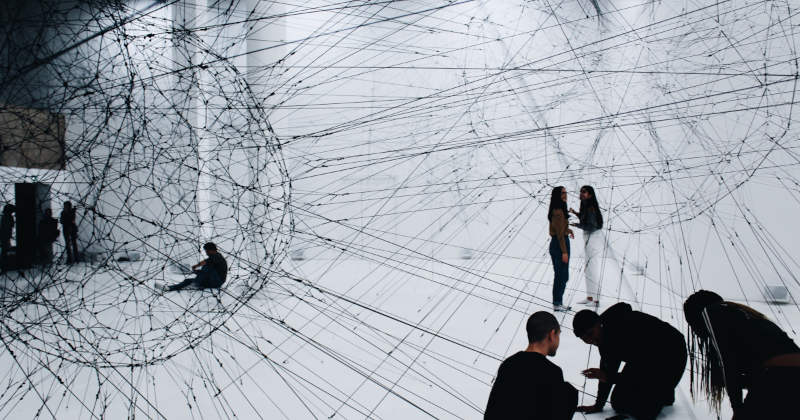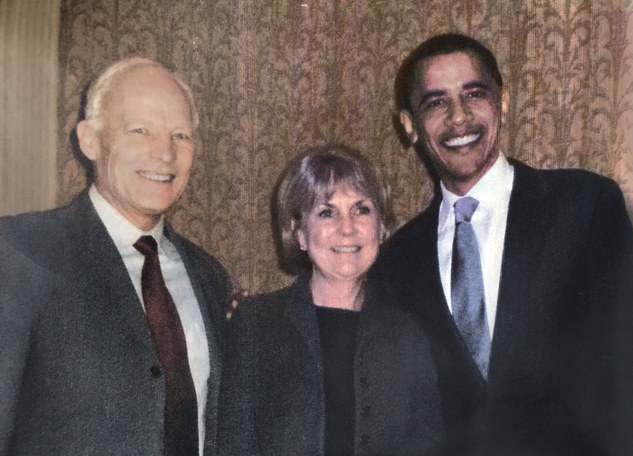If you are a regular reader of this blog, you know that I try to stick with timeless themes vs. timely traumas. For example, I studiously avoid using the “T” word. In the last five years of posting, I have only slipped into the political muck a few times. While this post still remains true to timeless, generic, and universal principles, I apologize in advance for letting my toe slip into those seductive, but poisonous, political waters.
In a recent column in the NYT, Thomas Friedman expressed his angst at the disappearance of cardinal norms in military and diplomatic command, e.g. “You look out for your soldiers, you don’t leave your wounded on the battlefield and you certainly don’t stand mute when you know a junior officer is being railroaded by a more senior commander.” Based on the behaviors we have seen in the past 3 years, it appears the new normal is to stab people in the back with a twitter knife.
Just because something is normal in a culture does not make it ethically sound. Normal merely means there is a social consensus about what is held as “true”, precluding further critical examination of the norm in question. In Friedman’s example, two cardinal rules in the military are to look out for your soldiers and never leave your wounded on the battlefield. These two rules are ethically sound and have been traditionally true. In the current environment, we not only need to examine critically what is now true, but also how the “truth” has changed, and how ethical our current behaviors are.
I have been studying culture change and ethical leadership for the past 50 years. This long pursuit, coincidentally, was triggered by my three year stint in the military, (where I learned the cardinal rules of look out for your buddy and never leave the wounded behind), including a one-year tour of duty in Vietnam where I applied those principles. My military experience motivated me to look more deeply into ethical leadership. One of my posts five years ago, “Ethical Leadership,” specifically addressed that subject.
What I have learned over the years is that culture change is based on three primary truths:
- The culture exerts more power on our behavior than we dare imagine.
- We are largely unaware of how powerful that impact is.
- We can create norms of our choosing.
Truth 1: The culture exerts more power on our behaviors than we dare imagine. If we have had few immersion experiences outside our insular communities, most of us tend to take on the behaviors and beliefs of that community. Think about the different experiences, for example, between a child growing up in a Jewish culture in NYC or LA vs. a child growing up in Baptist culture in rural Mississippi or Alabama. I’m not making any assertions about which experience is better or worse, I’m simply raising questions about how each child is likely to think, feel, and act based upon their particular upbringing. I’d be willing to bet that one child would be more likely to have progressive and pluralistic views than the other. My point, however, is not to compare urban liberal values to rural conservative values but to prompt all of us to ask, “how did the culture I grew up in influence my beliefs, behaviors, thoughts, feelings, and convictions?”
Truth 2: We are largely unaware of how powerful that impact is. We like to think of ourselves as independent thinkers with free will to exercise our personally-developed values as we see fit. My experience is that we need to pause for a moment to reflect upon just how much independence and free-will we actually have. I grew up in a small, homogeneous, rural community in Michigan. I was raised as a Methodist in a conservative church and went to a local college. It took the shock of Vietnam to make me examine and question the values and beliefs I learned as a child. I was lucky enough to be raised in a family that valued honesty, integrity, decency and generosity. Unfortunately, I didn’t hear about the importance of inclusivity, education, civil rights, and justice. In fact, I heard things that jar me to the core when I reflect upon them. All those tapes still run in my head even though I have made huge efforts to be aware of the tapes that play and how the culture influenced who I am today.
Truth 3: We can create norms of our own choosing. Ahh, now we get to the beauty and possibility of culture change. Once we recognize the power of the culture and how strongly we have been influenced by it, we can consciously and intentionally create norms of our own choosing. Most organizations love to create value statements and words on the wall, but few are willing to expose them to the light of day and the truth revealed by day-to-day behaviors. It seems to me that we have reached a crisis point in the world which demands that we come to grips with the culture we have created, and that we expose stated values to the light of day. It’s time to examine what norms now drive our behaviors. It’s time to notice what normalization looks like now.
For me, it took the shock of Vietnam, eight years in jail (as Director of Rehabilitation), the good fortune of benefitting from several extraordinary mentors, 50 years of hard work, and the amazing luck of having a wife and two daughters who continually challenge my beliefs and behaviors. I wouldn’t wish the first two on anyone, but I hope you have had similarly enriching experiences in the last three categories. Indeed, I assume if you are reading this blog your own journey has caused you to notice more carefully what’s happening inside us and outside us and what’s getting normalized.
In my experience, there are three key ways in which “normalcy” has changed in the larger American culture over the years. Surely, you have noticed others. I would love to hear what they are: Mine are:
- Entertainment now trumps education as the preferred way to get information.
- Appearance now trumps substance as the most desired characteristic of people in positions of power.
- Money now trumps meaning as the driving value for careers.
In short, more people watch Fox News than PBS. Many people listen more to actors and political pundits than they do to academics and scholars. And many of our best and brightest graduates are choosing Wall Street over Public Service for their careers. Our biggest threats no longer come from external sources although those are still real. They come from internal sources – we have fallen asleep at the wheel.
Returning to the hope implied in Truth 3 of Culture Change (we can create norms of our own choosing), here are the norms I would like to see in education, substance, and meaning.
Desired and required norms for education:
- Facts matter
- Kids have affordable access to early and equal childhood education
- We work hard to learn the truth
Desired and required norms for substance:
- Experience and education matter
- We promote rigorous research
- We dig deeply into multiple sources of information in search of truth
Desired and required norms for meaning:
- Principles and values matter
- Giving of ourselves to others counts
- Generosity abounds
That’s all I’m asking. Three shifts and three norms for each shift. All of those norms have been true at different times in different places. Why not make them ubiquitous and universal. You can make your own assessment of how strong those norms are in our current culture, how important they are to various constituents, and whether or not these norms are betting better or getting worse.
In order to make these shifts happen, we need to take four steps:
- Notice what’s happening now. We have to NOTICE what has been normalized in the environment, education, the economy and many other areas of our lives.
- Open up to what’s possible. We have to open to opening our beliefs and convictions to challenge and change. If we continue to hide in our smaller and smaller bubbles, nothing will change.
- Understand the dynamics. We need to crawl into the skin and souls of people with different points of views with different cultural upbringings. Empathy and compassion are critical in this step. Contempt and condescension are killers.
- Make the shift. It’s one thing to understand; it’s another to act. If we notice, open, and understand, the shift will come naturally.
I’m hoping we will notice what’s happening to us and the world before it’s too late. What’s getting normalized is wrong. We need to create constructive and sustainable norms now. May it be so.




You are a wonderful and beautiful human being my friend ! Thank you!
RonnyDonny